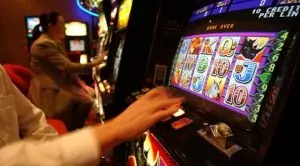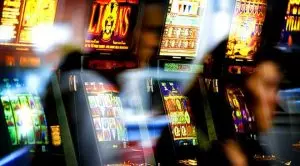 The planned reforms regarding controversial poker machines, also known as “pokies”, have been turned into law in the state of Tasmania, but anti-gambling campaigners claim that the local authorities had missed a once-in-a-generation opportunity to impose stricter measures to reduce gambling-related harm.
The planned reforms regarding controversial poker machines, also known as “pokies”, have been turned into law in the state of Tasmania, but anti-gambling campaigners claim that the local authorities had missed a once-in-a-generation opportunity to impose stricter measures to reduce gambling-related harm.
Tasmania was the first state in Australia that opened a casino venue back in 1973, and since then it has turned into a place where the political influence of the gambling lobby is huge. In November, Tasmania’s upper house passed a bill regarding poker machines but anti-gambling advocates believe this piece of legislation has only brought that influence even more to light.
For years, reports say that Tasmania has a huge gambling problem that has not only affected local residents and their families in terms of personal life, relationships, jobs and financial issues, but is also rumoured to have swayed elections. The strong political lobby of gambling operators in the state has also become the reason why the reform bill seeking to bring some changes to the industry and reduce the gambling-related harm inflicted on customers, which was only recently passed by the upper house of Tasmanian Parliament, has been called “a sweetheart deal” for the gambling industry.
Tasmanian Residents Spend about AU$50 Million on Pokies Every Month
 The problem that Tasmania has with poker machines is not a recent one. The controversial issues about pokies go back into the history of gambling and have often been associated not only with the victims of gambling addiction that resulted in falling into debt, but also with lack of information and disclosure, deals that have basically been agreed upon between Governments and the gambling industry behind closed doors and deals that until recently were not really brought under public scrutiny.
The problem that Tasmania has with poker machines is not a recent one. The controversial issues about pokies go back into the history of gambling and have often been associated not only with the victims of gambling addiction that resulted in falling into debt, but also with lack of information and disclosure, deals that have basically been agreed upon between Governments and the gambling industry behind closed doors and deals that until recently were not really brought under public scrutiny.
Another major problem that has led to many problems related to pokies in Tasmania has been the fact that the region is much disadvantaged in some economic indicators in comparison to other Australian states. The negative consequences faced by the local communities because of the strong impact of the state’s gambling industry and poker machines usually include some financial problems and financial harm inflicted on pokie players and their families, gambling addiction, and often leads to relationship and family breakdowns. Furthermore, the majority of communities across the state are considered high-vulnerable ones, while at the same time the state of Tasmania features the poorest protection against gambling-related harm in the entire country.
Over the years, the power of the gambling industry has been slowly brought to light, becoming more and more obvious in different ways.
The financial impact of poker machines is probably the biggest and most important proof of the negative effect that pokies have on Tasmanian residents and local communities. Reportedly, Tasmanians spend approximately AU$50 million on poker machines on a monthly basis, with most of the money spent on pokies coming from problem gamblers who find it hard to control their gambling habits.
How Have the Undisclosed Agreements between Gambling Operators and the Government Come to Light?
 As mentioned above, the history of gambling in Tasmania dates back to the 1970s, and for a period of over 50 years, a Sydney family – the Farrell Family – has controlled literally all the legal gambling services in the state.
As mentioned above, the history of gambling in Tasmania dates back to the 1970s, and for a period of over 50 years, a Sydney family – the Farrell Family – has controlled literally all the legal gambling services in the state.
Back in the ‘70s, the Federal Group – a company owned and controlled by the Farrell Family – received the first-ever licence to run casino gambling in the state and later got the Government’s permission to offer other forms of gambling in Tasmania. Since then, the company has had control over the entire gambling sector in the state for more than 50 years, forming a statewide monopoly over gambling. As of 2020, the Federal Group held full control of one of the two casinos in Tasmania and owned a stake in the other, and also owned 12 pubs across the state, with the overall number of poker machines being about 1,500.
For years, the company’s strong relationship with the local Government has been criticised because the gambling operating licence held by the Federal Group has been repeatedly renewed by the competent authorities without opening a tender procedure. Also, no details about the procedure or the agreement itself have been disclosed, so much of the deal is not on any public record in the state.
The political tide, however, started changing in 2015, when the professional gambler and art collector David Walsh unveiled a project to establish a high-roller casino featuring no poker machines in Tasmania. In order to give him official permission to do so and hand him an operating licence for such a casino, the Tasmanian Government had to make a deal with its long-time favourite, the Federal Group, because the issuing of such a permit would violate the company’s monopoly over gambling in the state.
In the process of negotiations, the Federal Group required to have its monopoly over pokies extended in return for its consent to Mr Walsh’s high-roller casino licence. Walsh, however, did not agree to that condition and left his idea behind, eventually exposing the “sweetheart agreement” between the Tasmanian Government and the gambling operator.
Poker Machine Tax Increased but Casino-Based Pokies See Their Tax Cut by More than 50%
 The revelations of Mr Walsh about the strong relationship between the local Government and the gambling monopoly holder in the state have had some positive effects because they raised the public scrutiny on the gaming and gambling sector. In addition, the Liberal Government made a pledge to make the industry more sustainable and implement the highest standards of probity and gambling-related harm minimisation.
The revelations of Mr Walsh about the strong relationship between the local Government and the gambling monopoly holder in the state have had some positive effects because they raised the public scrutiny on the gaming and gambling sector. In addition, the Liberal Government made a pledge to make the industry more sustainable and implement the highest standards of probity and gambling-related harm minimisation.
It appointed the Joint Select Committee on Future Gaming Markets to carry out an inquiry and check pretty much everything that can be checked about the local gambling industry – its impact on the economy and the social implications associated with gambling, the taxation and regulation of the sector, its future, as well as the Tasmanian public’s opinions on the industry. The Committee held six months of public hearings and as a result, a total of 149 submissions were made by all interested parties.
The local gambling industry basically proposed a new model of licensing for gambling interests in the state of Tasmania. Under the changes suggested by the representatives of the state’s gambling sector, local hotel owners would be provided with the chance to apply for poker machine operation licences for their venues. According to experts, such a move would immediately boost pubs’ values significantly because they would be the ones holding pokie licences rather than the Federal Group.
There has also been a proposal under which the tax on pub pokies would be increased. However, another proposal raised much criticism, as it has been suggested that pokies in casino venues, which are considered much more addictive than regular poker machines, should see their tax reduced from 25.80% on gross profit to only 10%.
These proposals have been implemented in the latest pokie legislation that was passed by the upper house of the Tasmanian Parliament. The new piece of legislation effectively breaks up the monopoly of the Federal Group but it also means that individual pubs hosting poker machines would be generating more money. The reduction of the tax on casino-based pokies would also mean more money for the Federal Group, with this part of the bill facing a lot of criticism for once again favouring the gambling company.
- Author


